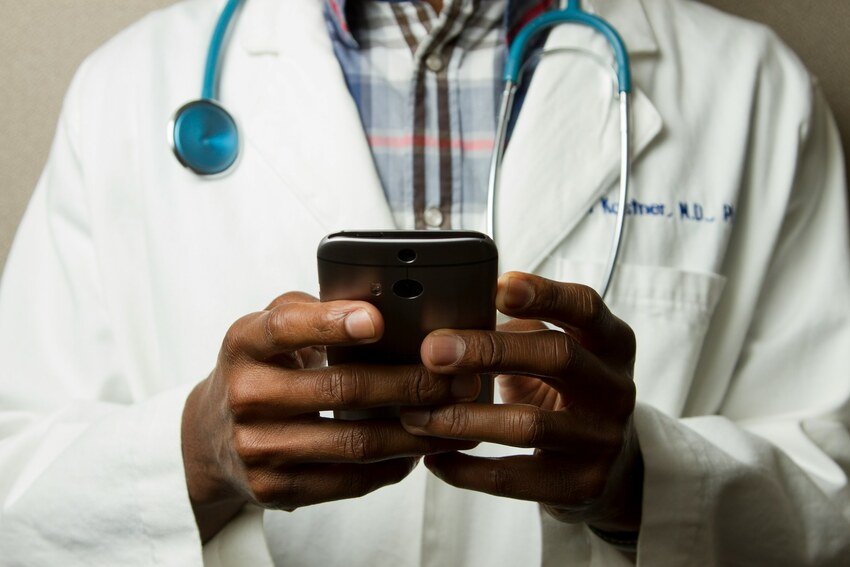In today’s fast-paced digital world, the security of patient data is under serious threat. Healthcare providers are increasingly targeted by cybercriminals due to the sensitivity and value of medical records. Traditional systems, while digitized, are struggling to keep up with modern threats.
This is where blockchain and cryptocurrency technologies come into play. Known primarily for disrupting finance, these innovations are now being applied to secure, decentralize, and empower the healthcare data landscape. In this article, we’ll explore how blockchain and crypto are transforming data privacy, improving patient control, and setting new standards for the future of healthcare.
Why Traditional Healthcare Data Systems Are Vulnerable
Despite digital advancements, most healthcare providers still rely on centralized databases to store patient information. These systems, while convenient, pose serious risks. When a single point of access is compromised, the entire database can be exposed.
Hackers target medical institutions because of the richness of the data — everything from names and addresses to medical histories and financial information is bundled together. In 2023 alone, the healthcare industry experienced the highest average cost per data breach across all sectors, reaching nearly $11 million per incident, according to IBM.
What’s worse is the lack of real-time tracking. Often, neither patients nor providers know when data is accessed or altered until it’s too late.
Blockchain: A Secure, Transparent Solution
Blockchain technology changes the game by distributing data across a network, removing the reliance on a single server. Each transaction or data change is recorded on a block, forming an immutable chain. This ensures that any access, alteration, or update is traceable and transparent.
The benefits extend beyond simple storage. With blockchain, patient data becomes tamper-proof, and every action is logged in real-time. No more worrying about silent breaches or unauthorized changes. Smart contracts can also be used to automate permissions, ensuring that only the right individuals have access — and only when they’re allowed to.
Healthcare-focused blockchains like Hyperledger Fabric and Ethereum-based solutions are already being tested and implemented in pilot programs across the globe.
Crypto Isn’t Just Currency — It’s a Healthcare Enabler
While cryptocurrency is often associated with trading and speculation, its foundational technologies offer powerful tools for healthcare. For example, crypto tokens can be used to manage access to patient data, replacing manual permissions with digital keys that are both secure and programmable.
Decentralized identity systems are another promising application. Imagine a patient’s health record stored securely in a crypto wallet, accessible anywhere in the world. This empowers patients to share their data instantly with new providers without waiting days for transfers.
Even incentivized health ecosystems are emerging, where patients earn rewards for healthy behavior or participation in clinical trials. Some platforms are blending gamification into the mix, offering fun interactions while maintaining privacy and compliance. This is where integrations like fun777 could play a role — by creatively linking engagement to rewards in a secure, blockchain-powered environment.
Real-World Innovations Already in Use
Several healthcare innovators are proving that blockchain isn’t just theoretical. MIT’s MedRec platform enables patients to control their entire health history across multiple providers. Companies like BurstIQ and Patientory are using blockchain to facilitate secure data exchanges and patient identity management, all while staying compliant with laws like HIPAA.
These platforms not only safeguard patient information but also improve operational efficiency, reduce paperwork, and build trust between institutions and individuals.
Empowering Patients Like Never Before
One of the most revolutionary aspects of blockchain in healthcare is how it shifts power back to the patient. Traditionally, patients had limited visibility into who accessed their records or how their data was being used. Blockchain eliminates this blind spot.
Now, patients can see exactly when and by whom their data is accessed. They can grant and revoke access instantly, and smart contracts ensure their wishes are respected even if they’re unconscious or unable to speak.
This level of control fosters trust. Patients no longer need to depend solely on healthcare providers to protect their data — they’re empowered to manage it themselves.
Barriers to Full Adoption Still Exist
Despite its promise, blockchain adoption in healthcare faces several obstacles. Many hospitals and clinics operate with outdated technology that isn’t compatible with modern blockchain solutions. There are also concerns about scalability, as blockchain systems can be slower when dealing with large volumes of data.
Legal and regulatory uncertainty is another hurdle. Healthcare providers must comply with strict privacy laws like HIPAA in the U.S. and GDPR in Europe. While blockchain can enhance compliance, implementing it without violating these laws requires careful planning. You can read more about GDPR here on Wikipedia or explore HIPAA compliance on Investopedia.
In addition, storing large files — such as MRI scans or genomic data — on the blockchain itself isn’t practical. Hybrid systems that store large files off-chain while referencing them on-chain are being explored as a compromise.
A Look Ahead: What the Future Holds
With growing concerns over data breaches and patient privacy, blockchain and crypto are poised to play a central role in healthcare’s future. Governments, institutions, and startups are working to streamline regulations and improve blockchain’s accessibility, making it easier to integrate into real-world medical systems.
In the near future, we could see universal health wallets, automated data-sharing protocols for emergencies, and transparent research databases — all powered by blockchain. Crypto tokens may become standard in encouraging healthy behavior, lowering insurance premiums, or funding decentralized health studies.
This technology could become as essential to healthcare as stethoscopes and syringes.
Frequently Asked Questions
Q1: Can blockchain prevent all data breaches in healthcare?
While no system is entirely breach-proof, blockchain significantly reduces risk by decentralizing data and adding layers of encryption and transparency.
Q2: Is this technology legal to use in patient data systems?
Yes, as long as implementations are compliant with privacy laws like HIPAA and GDPR. Many blockchain healthcare startups are already certified under these standards.
Q3: Will patients need to understand cryptocurrency to use these systems?
Not at all. Interfaces are being designed to hide complex processes behind simple dashboards, ensuring usability without technical know-how.
Q4: How do health tokens benefit patients?
Health tokens can reward healthy behaviors, participation in medical research, or even manage access to records — putting control in the patient’s hands.
Q5: Can blockchain speed up emergency care?
Yes. By making data accessible instantly (with patient consent built in), emergency rooms can provide faster and more accurate care.
Q6: What happens if a blockchain platform crashes?
Because it’s decentralized, there’s no single point of failure. Even if some nodes go offline, the data remains accessible and safe.
Conclusion: Embrace the Shift — It’s Already Here
Blockchain and crypto are not just future trends — they’re active solutions that are already enhancing how healthcare handles sensitive information. They offer stronger protection, greater transparency, and a chance for patients to truly own their health data.
Healthcare leaders who embrace these tools today will be better positioned to lead tomorrow. The systems we build now will define how securely and efficiently we care for each other in the decades to come.



